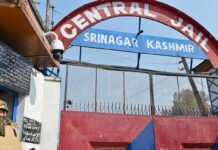The J&K High Court ruling seeking reinvestigation of the 1998 Sailan Massacre in which 19 members of a family including 13 women were shot and axed to death allegedly by the government forces has given a new hope of justice to the victims of a colossal tragedy, Saima Bhat reports.
The Jammu and Kashmir High Court has breathed a fresh life into the 1998 Massacre after it directed the Central Bureau of Investigation (CBI) to reinvestigate the case. The massacre in Surankote, Poonch happened on an intervening night August 3 – 4 in 1998 when 19 members of three related families, including 13 women (one of whom was pregnant) were shot and axed to death in a span of seven to eight minutes.
The J&K police had then blamed ‘foreign militants’ for the massacre but an inquiry conducted by the State Human Rights Commission (SHRC) in October 1998 ruled out the involvement of militants and implicated the Army and the state police in their report.
The SHRC investigation mentioned in its 17-page report that despite giving oral statements, written hand notices were put in the village, police station and district office, asking the local Army unit to be present for information collection, the Army did not participate. The SHRC team was informed by the Superintendent of Police (SP), Surankot that ‘Army will not participate but wants an independent inquiry to be conducted once the commission returns back’.
In its report, the then SHRC Chairman, Justice GA Kuchhai, had reported that the 19 innocent persons were killed in a barbarous manner in association with a special police officer (SPO) Zakir Hussain’s death, who was killed by some unidentified militants on the same day.
The Sailan villagers had claimed that Sevak Singh, the then SP, Surankote (himself jailed on charges of involvement in killing of his young subordinate sub-inspector, Ajay Gupta, who had criticized Singh in front of many people that he was victimizing and killing innocent people), told the local Army unit that Imtiyaz, a militant and a relative of the slain villagers, was behind the killing of Zakir.
Zakir, a surrendered militant, was an informer of the 9 Para Unit of Army situated in Bafalyaz in Sailan. When he was killed, the Army was provoked and some of his co-associates and the Army openly declared that they will take revenge by killing all the relatives of Imtiyaz, the SHRC report stated.
As per the documented witnesses, the lone survivor of the massacre, Shabir Ahmad Sheikh, then 16, from the deceased family had gone out to ease himself when he heard the sound of people walking with torch lights. He saw his family members being told by the Army to go to the house of Hassan Muhammad (another uncle) for a brief talk after which he heard firing and deafening cries. Shabir went to his house in the morning and saw his father, mother, four sisters, two uncles, an aunt, nine cousins and a sister-in-law lying dead in his uncle’s house. Some were hacked with a rusted axe and some sprayed with bullets.
After the massacre the villagers were terrified and they fled the village, leaving the bodies unattended. The bodies were buried in Surankote later. However, most of the villagers didn’t return to the village for two months. On the recommendation of SHRC, Shabir was lodged in government quarters for two months and guarded by six police guards.
“Dr Farooq Abdullah (the then chief minister) called me to Dak Bungalow at Surankote and told me ‘Don’t tell anybody about it (the massacre). Your life is in danger’. He also assured me that the killers would be punished. Indian Defense Minister, George Fernandes, also made a similar promise,” Shabir was then quoted by various media outlets.
In December 1998, the case was closed by the police. But Shabir and others from the village moved the High Court on Nov 2, 2011. The High Court admitted the petition on Feb 8 this year. The petition was filed by Advocate Parvaiz Imroz and the order was given by a single bench of Justice Muzaffar Hussain Attar.
“It is provided that CBI will conduct an investigation in accordance with law and ensure that justice is meted out to the petitioners. It is hoped and trusted that investigation will be conducted ‘with reasonable dispatch’ (as soon as reasonably possible),” the court observed.
Earlier, the Station House Officer of Surankote filed a status report stating that the case was investigated and closed on three occasions. “It was uncertain if the closure report was ever produced before a court. The relevant documents kept at the Sub-Divisional Police Officer, Mendhar’s office were gutted in a fire in September 2010,” he told the court.

















How can we forget when we have you to remind us.
I have heard a lot about Pervez Imroz and about his human rights acitivities.
I wish your articles were published in national and international newspapers.
Its a shame on the Government. False promises are one of the biggest crime in Islam ,.
Pleas give Justice. Today its him , tomorrow it could you or then me
Faieza Khan
Twitter @faiezakhan